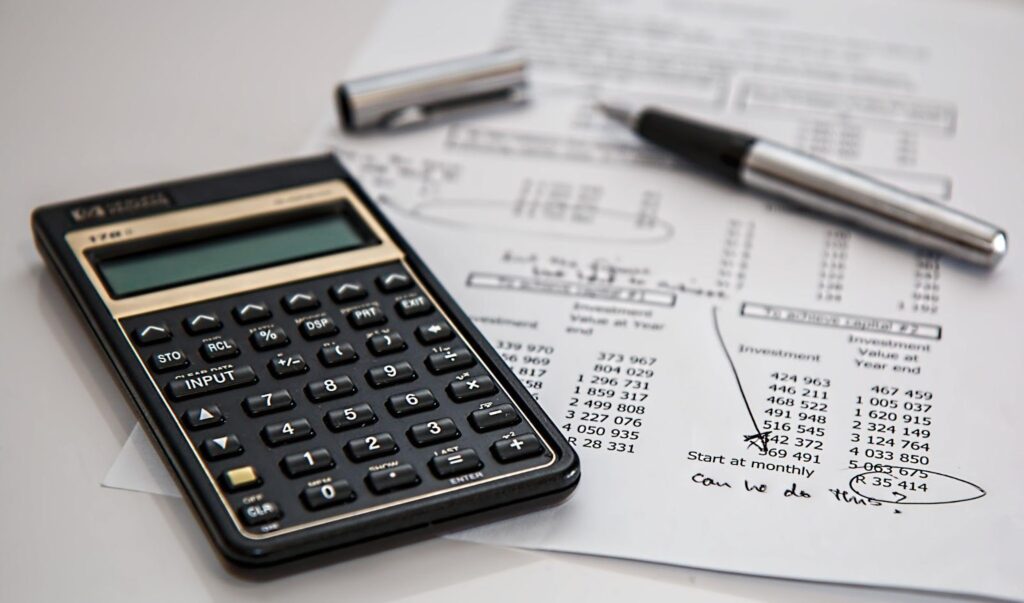Is a Calculator Really a Computer? Here’s the Answer!
Despite the fact that a virtual calculator can be accessed anywhere, today, on any computer system, many people still prefer to go old-school with pocket calculators.
Ever wondered if your digital calculator could perform like a computer? It’s time to explore the essential distinctions between calculators and computers, as well as what they share in common. From basic calculators to scientific ones with intricate graphing features – calculating devices have an important role in tackling our math problems.
Let us dive into these comparisons of functionality and usage, so you can understand better how each machine works differently yet collaboratively together.
Can A Calculator Be Considered a Computer?
Although a simple calculator can not be referred to as a computer, an advanced scientific calculator containing internal programming able to solve equations qualifies as one.
Computers have a unique quality that sets them apart from other electronic devices, and that is programmability. Not only can they do all the calculations a calculator can, but computers are also capable of far more sophisticated operations than a calculator could ever perform.
Accordingly, we can think of a computer as an exceptionally quick and intricate calculator that is capable of executing operations far more advanced than arithmetic. It has the power to execute sophisticated logical functions such as inputting, selecting, categorizing, and comparing data with ease.
Computer programs possess the ability to take different directions depending on intermediate results, while calculators are limited in terms of functions and operations, they can perform. Despite some calculations being complex and sophisticated, a calculator cannot make logical deductions or draw conclusions from inputs given – it is solely dependent upon its programmed instructions.
It is not easy to tell computers and calculators apart. Today, we have calculators that can perform basic programming tasks.
Not only can some calculators enable basic text editing, but they are often referred to as mini-computers used to do math calculations. Let us further explore the disparities and resemblances between a calculator and a computer in moments!
What are the key distinctions between a calculator and a computer?
Although both computers and calculators are created to simplify our lives, they have various differences in design and utility.
Operation
A computer is an electronic device that manipulates inputted data according to a set of instructions in its memory, and stores them for later use. In simpler terms, a computer takes various forms of data and transforms them into useful information, which it then holds onto for future reference.
The information processing cycle is made up of four components: input, output, process, and storage. Recent advancements have also included communication in this loop. In comparison to the versatile nature of an information processor, a calculator is limited only to basic arithmetic operations and math calculations.
Nowadays, the term computer encompasses various smart devices, like desktops, smartphones, and laptops. Each of these devices has a basic calculator to carry out easy math operations; however, they can do much more than your standard calculator.
With a computer, you can do a lot of things, like sending emails, editing videos, playing games, and making video calls. Computers can use different software to do different tasks, but calculators are only able to do the math.
Moreover, a PC can operate other devices, such as speakers, microphones, and printers. Standard calculators aren’t usually linked to any other device apart from sophisticated models designed specifically for use with point-of-sale equipment.
Complexity Of Calculations
Before comprehending the distinction between a calculator and a computer, you should first grasp the contrast between calculation and computation. A calculation entails a succession of arithmetic operations, while a computation involves methodically applying rules.

A calculator is ideal for everyday calculations, but when faced with more difficult computations, a computer is a way to go. Moreover, calculators are only capable of executing one operation at any given moment – it can be frustratingly time-consuming and tedious to press multiple buttons in succession just to find the answer to a simple equation.
In stark contrast to a scientific calculator, computers can carry out multiple processes simultaneously, depending on the number of cores and threads your CPU has. Despite its proficient capabilities in handling complicated maths equations, it is still significantly limited when compared to what modern computing systems are capable of doing.
Programmability
One of the key differences between a computer and calculator is that computers are programmable. This means you can give instructions to the computer, allowing it to autonomously carry out complex operations with ease.
A computer will automatically go through the required steps to install a program based on the given instructions without needing any help from you. On the other hand, in order to compute similar equations repeatedly, you must manually enter all of the same commands unless your calculator is capable of storing a series of instructions.
Conclusion
A calculator is an essential tool for dealing with simple arithmetic operations. But when it comes to tackling more complex problems, a computer is the best choice due to its programmability and power. Calculator technology has come a long way in recent years, but it still lacks the ability to carry out basic programming tasks that computers can do with ease.
No matter what device you are using, there are many similarities and differences between computers and calculators, which should be taken into consideration when deciding which one would best suit your needs. The key takeaway is that each device serves different purposes – so think about what you need before deciding!
